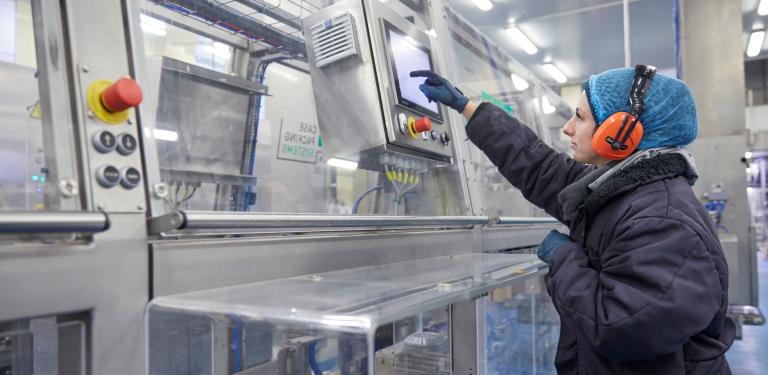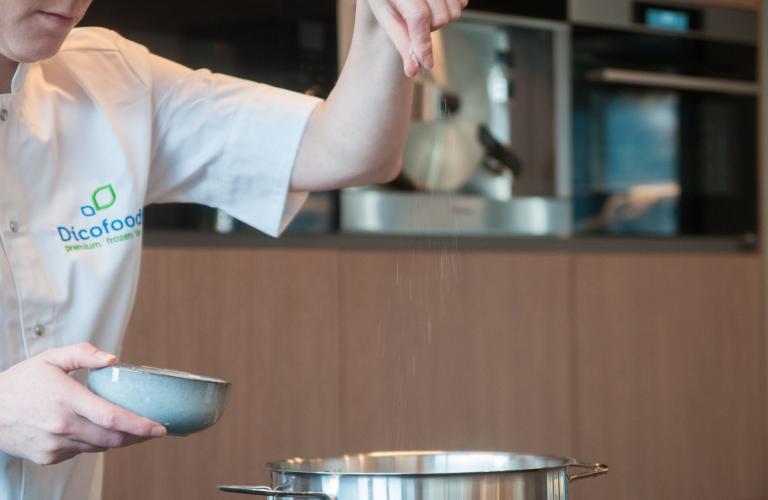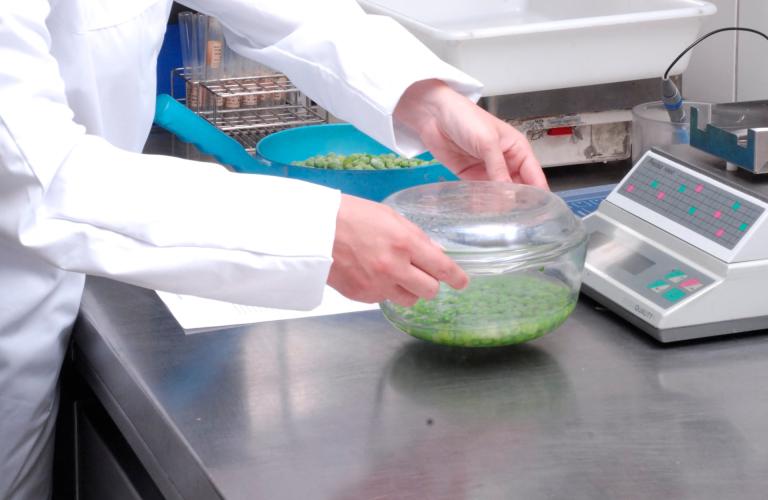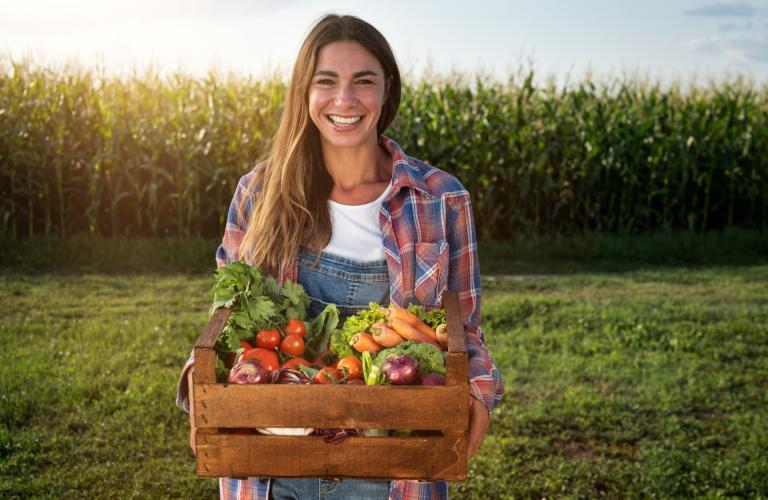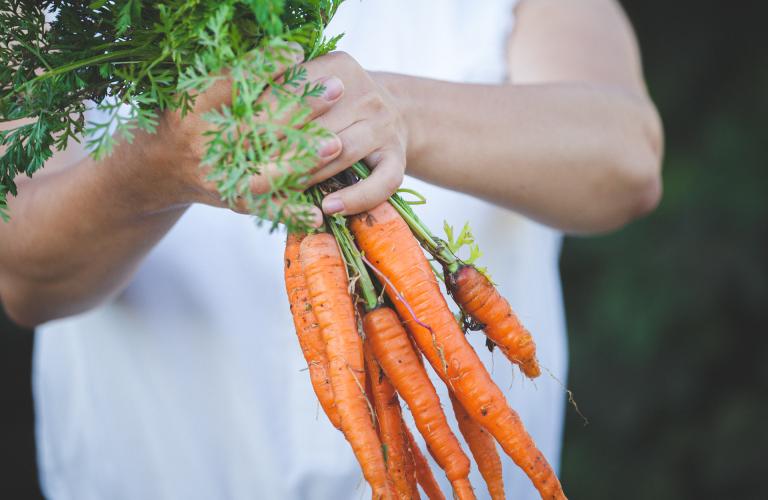Sustainability
Sustainable business has deep roots at Dicofoods. That’s because nature is the source of everything we produce. To protect and sustain nature for future generations, we invest in sustainable production and strive to minimise the ecological footprint of all our activities. Ultimately, that benefits the planet, people and our products.
Fresh from the fields
Wherever possible, we process fruit, vegetables and herbs from our own region. The strategic location of our sites close to close to growers keeps the transport of raw ingredients to a minimum.
Economising on water
Being economical with water is an important aspect of sustainable business. We utilise innovative technologies to minimise our consumption. Our reverse osmoses process and efficient purification systems collect rain and used water for reuse in the production process. We also use the heat from the production process to raise the temperature of water, reducing consumption.
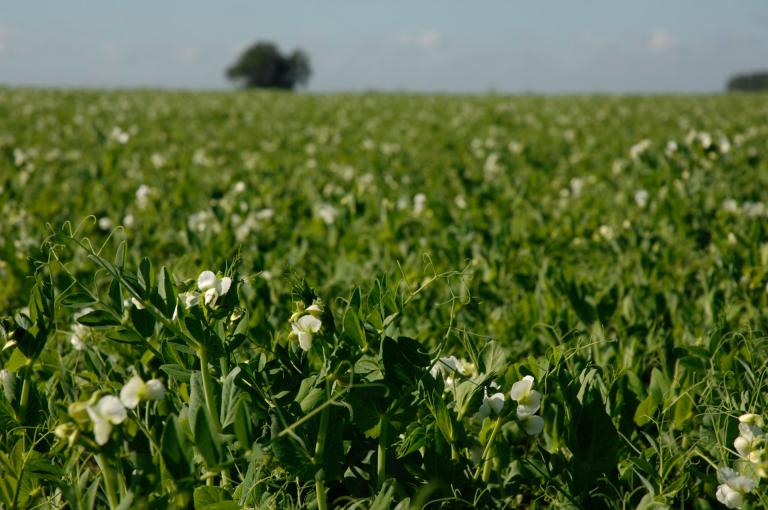
Energy-efficient production
Monitoring energy consumption at our sites is a hugely important part of our efforts to further reduce our ecological footprint. We lower our electricity and gas consumption every year by modernising our machinery and investing in innovative technologies (such as LED lighting and frequency changes on ammonia compressors).
Our highly insulated multi-storey automated warehouses are equipped with special airlock systems to minimise temperature fluctuations. We also utilise anaerobic and biogas systems and solar panels to produce our own electricity. And along with another 150 food companies, we have signed a voluntary industry agreement on improving energy efficiency and reducing carbon emissions (EBO in Flanders, Accord de Branche in Wallonia).
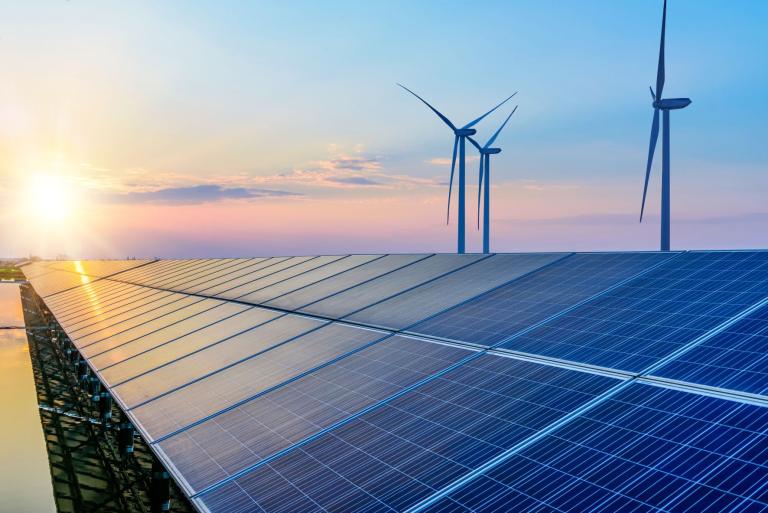
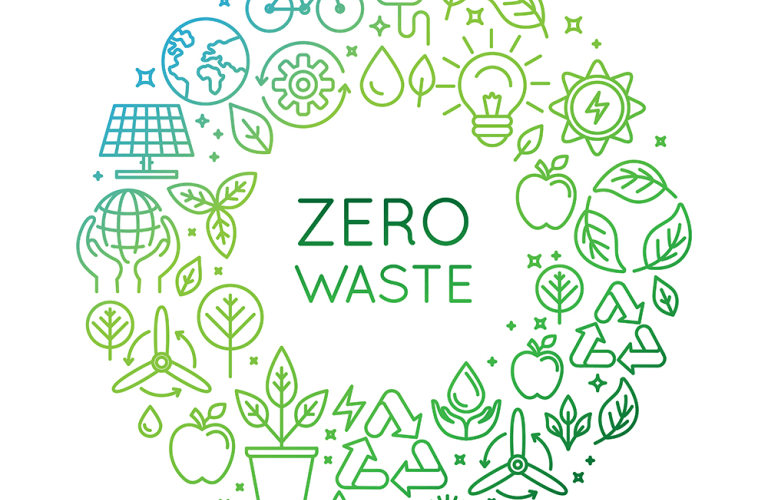
Limiting waste
We minimise our waste flows, which are fully recycled by ourselves or third parties.
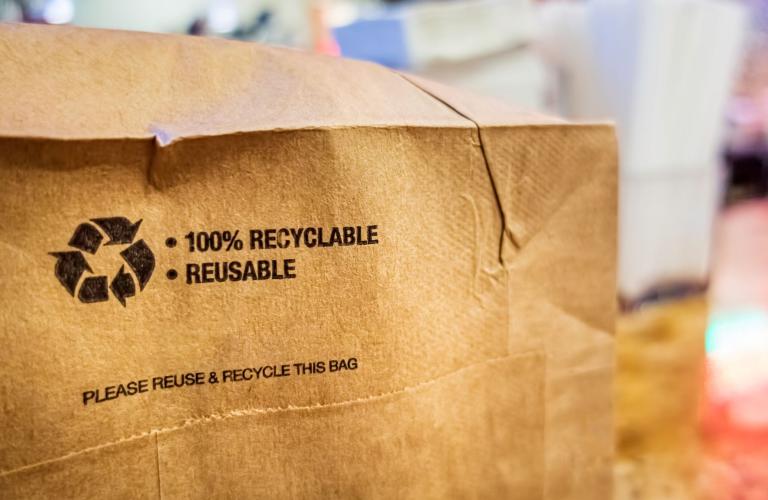
100% recyclable packaging
Wherever possible, for our vegetable packaging we’ve switched from laminated foils to fully recyclable single-ply foils.
Agronomy
To protect biodiversity we regularly rotate the crops in our fields, trying out new varieties with enhanced disease-resistance every year. All of our suppliers are members of VEGAPLAN and comply with the optimal use specifications for crop protectors. Mechanical weed control is always prioritised. Alternatives are used wherever possible, including insects, insect traps and nets (for cauliflower). We use precision equipment such as GPS-controlled drones to optimise dosage (including fertilisers). Our cultivation supervisors follow regular courses to ensure they are always able to give farmers the best possible advice.
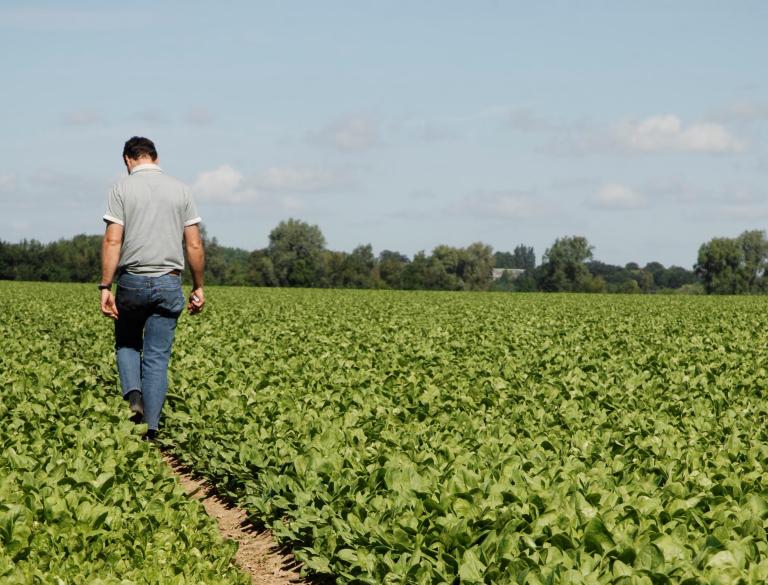
Dicofoods supports Farm to Fork
Food production puts a heavy burden on the environment. Fertilisers and pesticides are widely used, sometimes excessively. This is one of the main causes of biodiversity loss. Furthermore, overuse of antibiotics in cattle farming and aquaculture drives bacterial resistance. In the EU some 33,000 people die every year because of the lack of effective antibiotics.
The European Commission aims to tackle the harmful impact of food production on the planet and on people in the Farm to Fork initiative. Farm to Fork sets four targets to be achieved by 2030:
- A 50% reduction in pesticide use.
- A 20% reduction in chemical fertiliser use.
- A 50% reduction in the sale of antibiotics for cattle farming and aquaculture.
- A 100% increase in organic farming up to one quarter of the total arable land.
Work climate in the spotlight
The wellbeing of our employees is one of our priorities. As a family business, we are committed to treating people with respect and creating a safe, high-grade working environment.
But that’s not all... Ahead of every decision or investment we rigorously look for ways to enhance our sustainability strategy in the short and long term.
